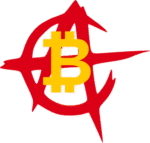Defining the Terms
Before we can critique the world we live in, we must define our words with precision.
Morality is the compass by which we navigate our daily lives. It is not handed down by rulers or
legislatures but emerges from the lived experience of human beings. At its core, morality is the
recognition that theft, murder, and fraud are wrong because they destroy trust, cooperation, and
community. These moral laws are universal. They do not depend on the time of day, the color of
one’s passport, or the seal stamped on an official decree. They are the natural rules that allow
humans to live together in peace and prosperity.
Schizophrenia, in medical terms, is a disorder of the mind characterized by distortions of
thought and reality. The word itself comes from the Greek roots schizo (“split”) and phren
(“mind”). Though clinical schizophrenia is not our subject here, its metaphorical meaning is
unavoidable. We live with a form of moral schizophrenia: the split between the morality we
apply in private life and the morality we accept from political authority.When an individual takes
something by force from another, we call it theft. But when the state does the same through
taxation, we call it “public finance.” When an individual kills, we call it murder. When the
government does it under the banner of war, we call it “defense.” When a counterfeiter prints
fake bills, we call it fraud. When central banks inflate the currency, we call it “monetary policy.”
The act is the same, but our moral judgment splits.
This fracture—this schizophrenia of morality—is what sustains the modern nation-state.
The Nation-State vs. Government
It is worth clarifying what we mean by these terms. Government is the apparatus of rule—the
courts, the armies, the tax collectors, the bureaucracies. It is the practical machinery of power.
The nation-state is the larger political concept: a sovereign entity that claims a monopoly on
violence, lawmaking, and money within a defined territory. For everyday readers, the term
“government” is more familiar, and we will often use it. But at the root of the problem lies the
modern nation-state itself, which institutionalizes this double standard in morality. The state
cloaks coercion in legitimacy, while government enforces it. The two are inseparable, one the
idea, the other its instrument.
Everyday Morality vs. Political Morality
Consider the split in conscience most of us live with daily:
We teach our children not to steal, yet pay taxes as if compelled by virtue.
We abhor violence in our neighborhoods, yet cheer soldiers sent abroad in “our” name.
We insist on honesty in business, yet accept lies as the very currency of politics.
This is not because people are wicked. It is because we have been conditioned to believe that
there are two moralities: one for us as individuals, another for the collective when acting through
the state. That double standard is what I call moral schizophrenia.
The Free Market: Natural Morality in Action
Yet in our daily lives, we already practice the alternative. The free market—the web of
voluntary exchange that provides every good and service we rely on—is nothing more than
morality applied consistently.
Every time you buy groceries, call a plumber, or hail a cab, you are participating in a network of
peaceful cooperation. Goods are exchanged, services provided, contracts honored—not by force,
but by choice. The free market is not a distant ideology. It is the water we swim in, the unnoticed
miracle of daily life.
Contrast this with the coercive hand of the state: taxes taken without consent, regulations
imposed without negotiation, wars waged without our approval. In one realm—the
market—morality rules. In the other—the state—moral schizophrenia justifies what we would
otherwise condemn.
The Cost of the Split
This fracture is not harmless. It corrodes integrity. It forces individuals into cognitive dissonance,
living by one code at home and another in the voting booth. It erodes responsibility, allowing
people to excuse actions they would never commit personally because “the law” commanded
them or “the government” sanctioned them. And it breeds passivity, as citizens outsource their
conscience to the machinery of the state.
Toward a Single Moral Code
The cure is radical in its simplicity: one morality, universally applied. If theft is wrong, then
taxation is wrong. If murder is wrong, then war is wrong. If fraud is wrong, then inflation is
wrong. No authority, however grand, has the power to transmute vice into virtue.This is not
utopia—it is consistency. It is the recognition that the same morality we practice in our daily
exchanges, in the free market of goods and services, should govern all human interaction,
whether private or political.
Conclusion
Moral schizophrenia is the hidden disease of our civilization. It sustains the nation-state,
legitimizes its power, and numbs the conscience of its citizens. But the cure lies in plain
sight—in the morality we already practice in the free market, where goods and services flow
through voluntary cooperation.
The challenge before us is not to invent a new morality, but to remember and apply the one we
already know. For morality is not divisible. It does not change when cloaked in authority.
Integrity demands one law for all—individual and collective, private and public alike.Only when
this split is healed will the nation-state lose its grip, and humanity move toward a world where
conscience, consistency, and liberty are one.
